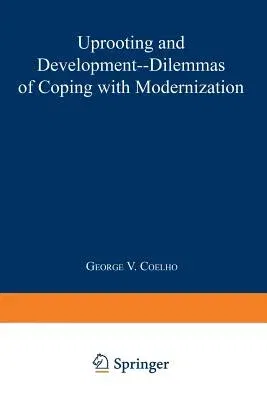Uprooting and Development: Dilemmas of Coping with Modernization (Softcover Reprint of the Original 1st 1980)Paperback - Softcover Reprint of the Original 1st 1980, 14 February 2013

Qty
1
Turbo
Ships in 2 - 3 days
In Stock
Free Delivery
Cash on Delivery
15 Days
Free Returns
Secure Checkout
Part of Series
Current Topics in Mental Health
Print Length
538 pages
Language
English
Publisher
Springer
Date Published
14 Feb 2013
ISBN-10
1468437968
ISBN-13
9781468437966
Description
Product Details
Book Edition:
Softcover Reprint of the Original 1st 1980
Book Format:
Paperback
Country of Origin:
NL
Date Published:
14 February 2013
Dimensions:
22.86 x
15.24 x
2.92 cm
Genre:
Health & Fitness
ISBN-10:
1468437968
ISBN-13:
9781468437966
Language:
English
Location:
New York, NY
Pages:
538
Publisher:
Weight:
748.43 gm

